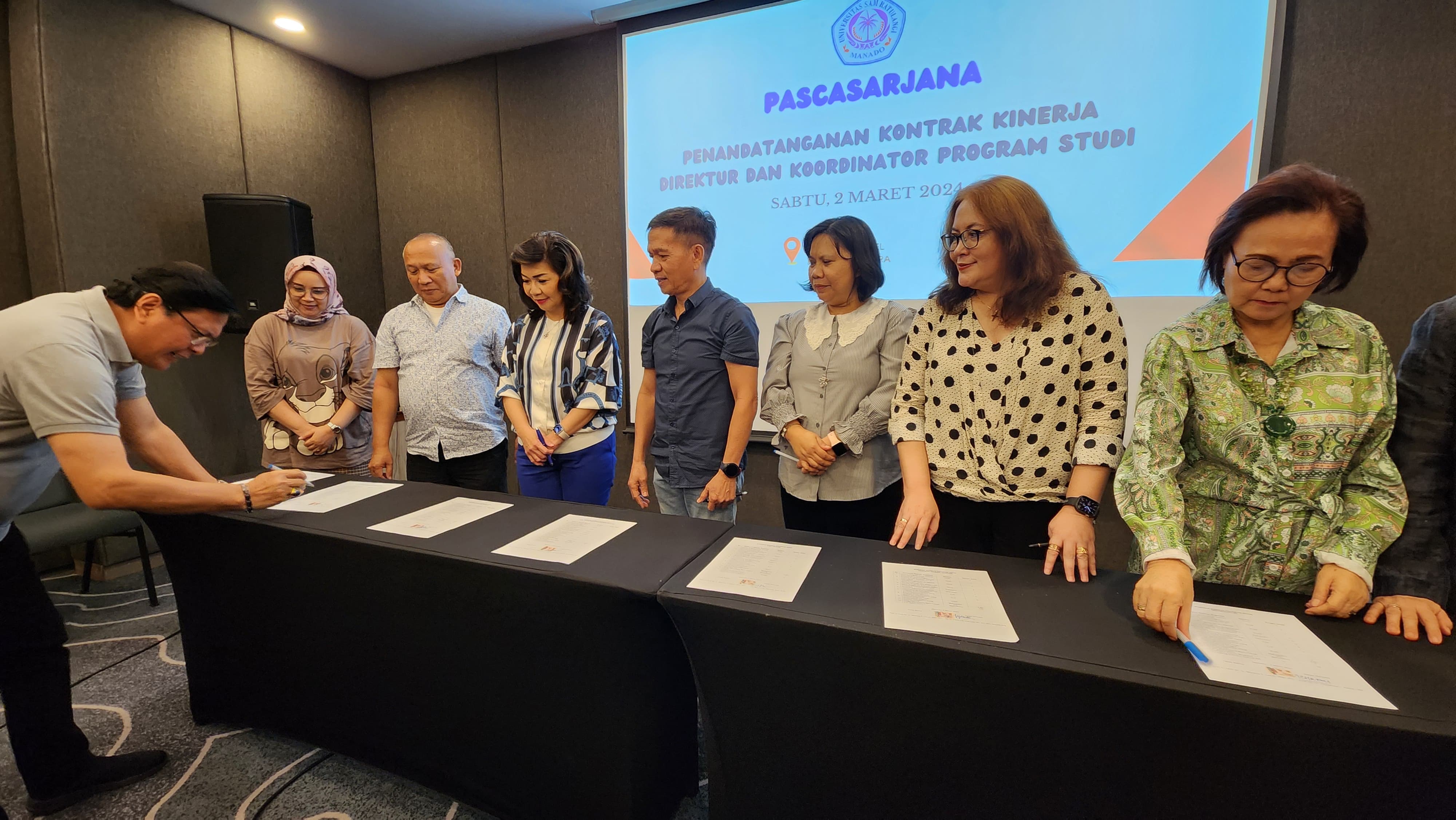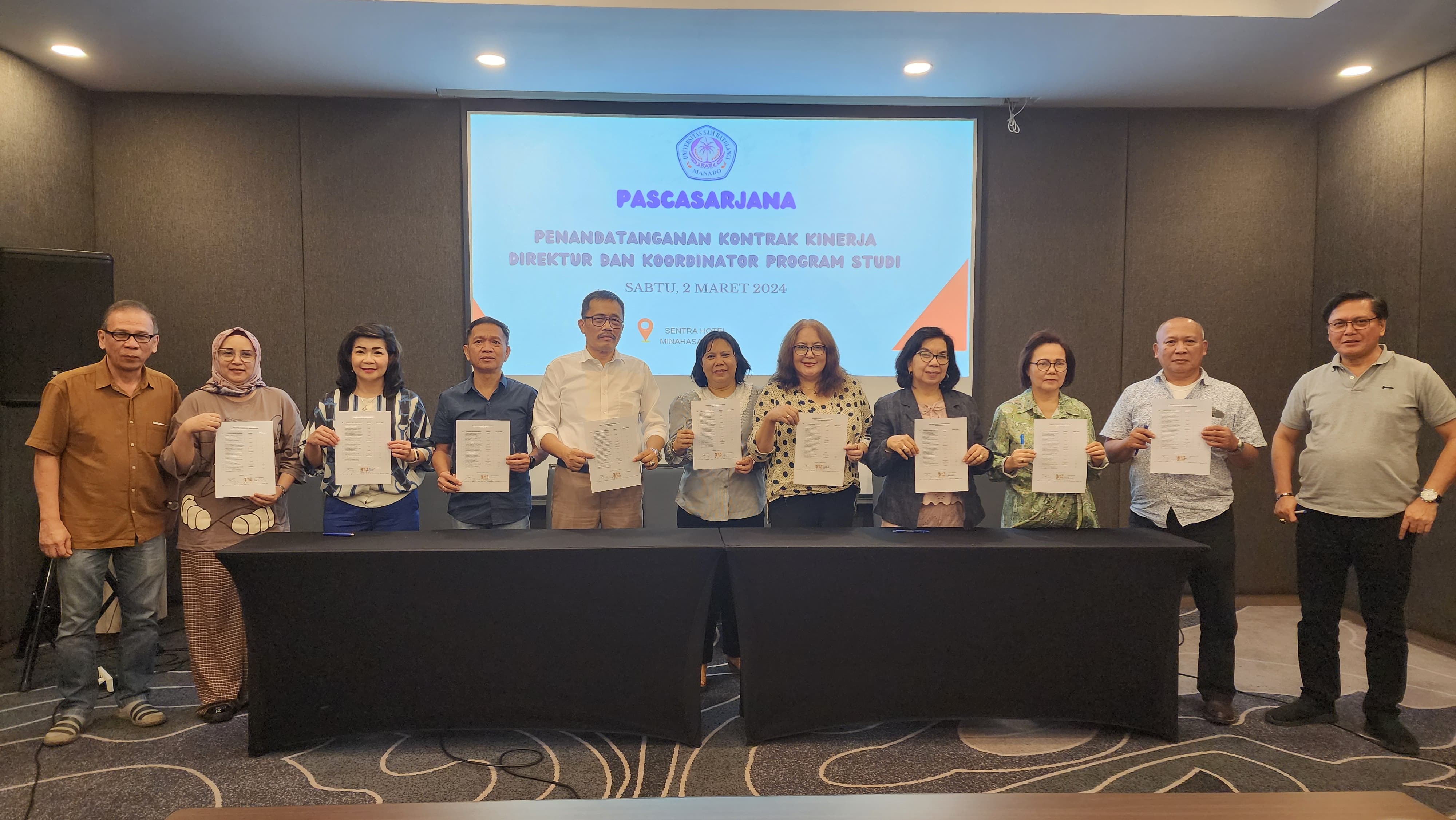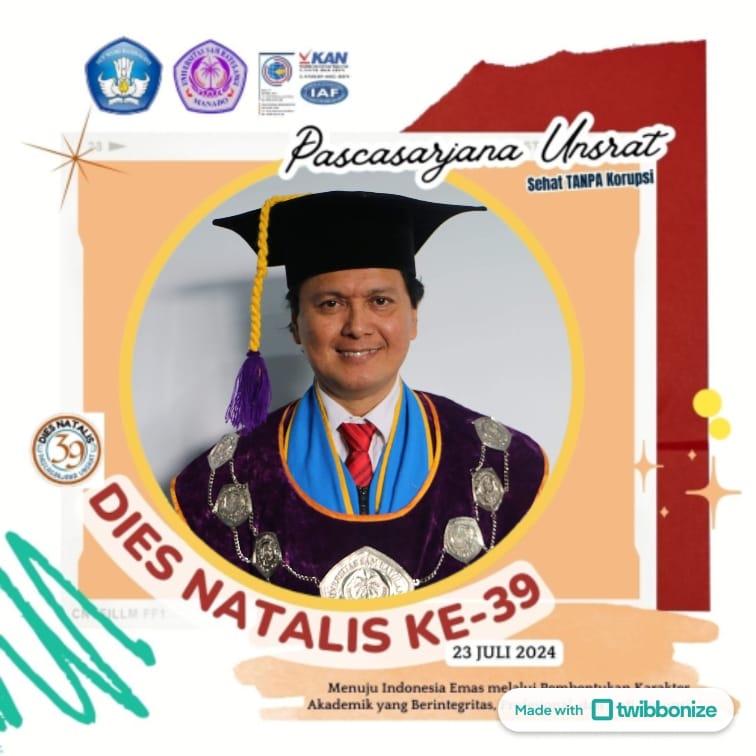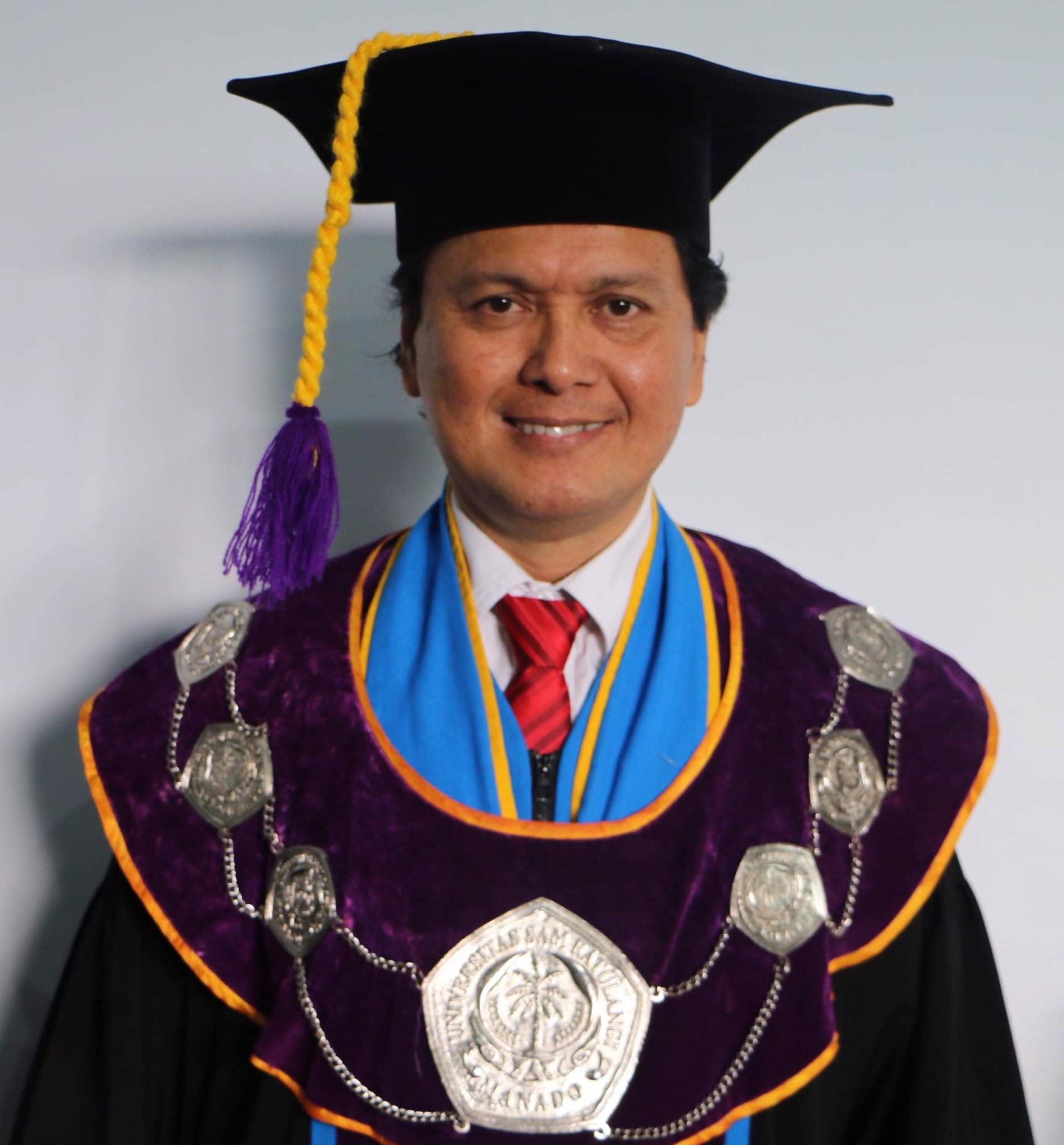


Untuk menyemarakkan kegiatan ini dan untuk membuat twibbonize seperti ini < klik di sini >

Selamat datang di situs resmi Pascasarjana, Universitas Sam Ratulangi (PPs Unsrat), Manado. Untuk mengenal dan mengetahui tentang PPs Unsrat yang telah tersertifikasi ISO 9001:2015 & ISO 21001:2018 ini, silakan berselancar lebih jauh ke dalam situs ini. Semoga bermanfaat.
Direktur PPs Unsrat:
Prof. D.Tech.Sc. Ir. Markus T. Lasut, M.Sc
Sebaiknya Anda Tahu: